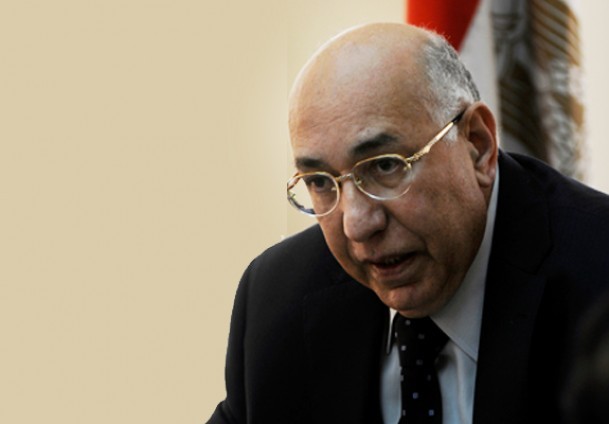Small- and medium-sized enterprises (SMEs), start-ups, and youth are key to increased inter-African investments and prosperity, according to Gamal Abou Ali, Chairperson of the Egyptian Junior Business Association’s (EJB) Board of Directors.
Abou Ali added that business associations are best equipped to represent them and support their businesses, with the help of IPAs, regional organisations, and financing and investment institutions.
His remarks came during his participation as a speaker during a session at the IPAs Africa Forum, which took place in Sharm El-Sheikh on 11-14 June.
The sessions was titled “Egyptian Investments in Africa: Opportunities and Prospects for the Future”, with Abou Ali moderating the session titled “Encouraging African Cross-Border Investments through a Unified Agenda and Intra-Regional Initiatives”.
The EJB participated in the forum’s sessions and B2B meetings with African delegations, and announced its “African Junior Business Initiative”.
Abou Ali praised the strong efforts made by the Egyptian Government and its General Authority for Investments and Free Zones (GAFI). These efforts have aimed to support companies looking to invest in Africa, or who are looking to attract investments and partners from African countries.
He noted that a big role is also played by Egyptian Commercial Services, Ministries and sectorial agencies.
Abou Ali added that the forum sessions showed that there are many promising investment opportunities in Africa, for Egyptian and African investors alike. He noted the important roles played by GAFI and the Egyptian Commercial Services in collecting and analysing business information.
This included opportunities in different African countries, to facilitate the entry of Egyptian companies into these markets, especially since most investors go to markets in which they have good knowledge or in which they have previously worked.
He also pointed to the benefit and importance of having an electronic platform that contains all relevant information about African countries and investment opportunities. This would aim to achieve integration, and to facilitate and expedite procedures for investors.
Abou Ali said that one the obstacles faced by investors in Africa relates to infrastructure, but that there have been relentless continent-wide efforts to overcome this obstacle.
He cited as an example the Cairo-Cape Town initiative, which connects the continent from north to south. He also mentioned the logistical areas and ports, and that the more they improve, the greater the volume of trade exchange between African countries.
Abou Ali stressed that infrastructure projects in themselves contain investment opportunities for investors, because it is the private sector that eventually carries out these works.
As for investment opportunities, he said that EJB members see good investment opportunities in which startups and SMEs can play a major role. These opportunities can be found in the fields of: agriculture; food processing; training and education; renewable energy; infrastructure; consultancy; and financial technology (fintech).
He proposed an agenda to meet the challenges of Egyptian investments in Africa. It includes coordination between investment agencies to obtain information on the investment environment.
This would also see information gathered on financing opportunities by banks and international institutions, providing an effective mechanism to ensure export and import operations. This would facilitate communication between African investors and local partners.
Abou Ali noted that the collaboration of business associations, investment promotion agencies, and sovereign funds can meet these challenges and implement this agenda.
During the forum, he announced the EJB’s African Junior Business Initiative (AJBI), which aims to create partnerships between companies, especially emerging ones, and SMEs in Africa. He said that the association will announce further details around the initiative soon.
Meanwhile, Abou Ali and several EJB members held bilateral meetings with over 25 African investment authorities, six African organisations, and African financing institutions.
The meetings aimed to discuss opening new markets for EJB members and the wider Egyptian business community, and looked to present EJB’s new initiative.
The EJB delegation included: Bassam Al-Shanwani; Mohamed Abdel Rahman; Mohamed Abou Basha; Nourhan El-Gabaly; Mohamed Saleh; Abdel Rahman Assal; Karim Imam; Sherif El-Gabaly; and Mazen Al-Minshawi.
On the other hand, the EJB’s Secretary-General Bassam El-Shanwany said that the association’s participation in the forum continues its role and its quest for expansion in Africa. It also highlights its keenness to cooperate with similar associations on the continent.
“We seek to implement the association’s plans, which includes promoting investment in Africa through the AJBI,” El-Shanwany said.
He also thanked GAFI CEO Mohamed Abdel Wahab for inviting the EJB to the forum, and his continuous support for representatives of the business community.
El-Shanwany said, “The meetings that took place on the sidelines of the forum’s activities will have a great impact on EJB’s plan to promote investment in Africa through AJBI, which was initiated by EJB and fine-tuned following meetings with Egyptian Commercial Services and the Executive Director of the International Monetary Fund (IMF).”
He added that the EJB delegation met with Wamkele Mene, Executive Director of African Continental Free Trade Agreement (AfCFTA), where the two parties agreed to arrange a meeting with members of the association.
This meeting would answer members’ questions about the agreement, how to benefit from it, and the agreement’s role in enhancing and increasing trade between African countries. It would also serve to inform members of the changes that may occur in the agreement, with the aim of accelerating the pace of investment and maximising trade exchange across Africa.
In addition, the EJB delegation met with Tarek Ammar, an expert in private sector projects at the African Development Bank (AfDB). During the meeting, the two sides agreed to meet with EJB representatives at the earliest opportunity to discuss the possibility of helping Egyptian companies expand in Africa.



